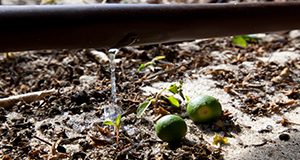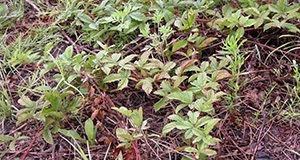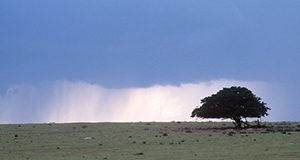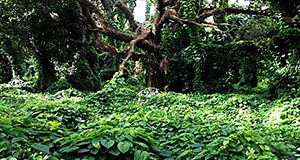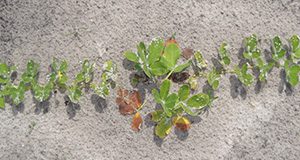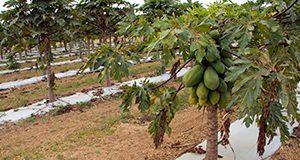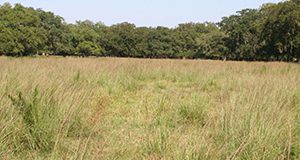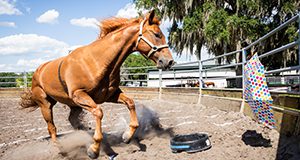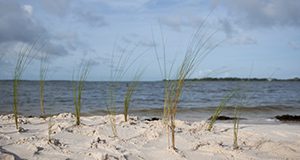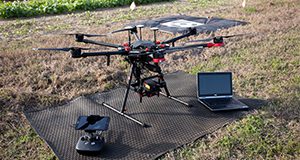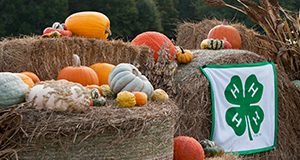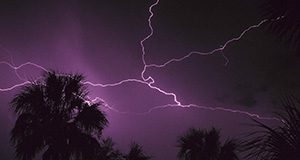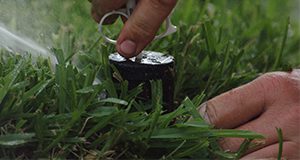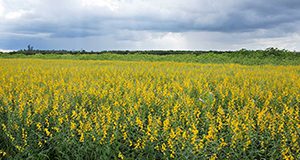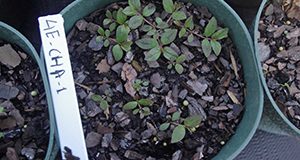Este documento provee un panorama básico de los factores más importantes al diseñar. Written by Haimanote K. Bayabil, Kati W. Migliaccio, Michael Dukes, Laura Vasquez, and Carlos Balerdi, and published by the UF/IFAS Department of Agricultural and Biological Engineering, December 2020.
https://edis.ifas.ufl.edu/ae549
Author: Amanda Quintos
Blackberry and Dewberry: Biology and Control
Blackberry and dewberry are often viewed as nuisance weeds that reduce grazing in a portion of the pasture. However, severe financial losses can occur if these growing thickets injure cattle. This 4-page document provides information regarding blackberry and dewberry management in pastures. Written by Brent Sellers, Pratap Devkota, and Jason Ferrell, and published by the UF/IFAS Agronomy Department, revised November 2020.
https://edis.ifas.ufl.edu/ag238
How to Structure Data from an IoT Monitoring Network
The Internet of Things, or IoT, refers to the billions of physical devices that collect and share data through the Internet. This 5-page publication discusses the typical attributes in IoT monitoring networks and presents a data structure that outlines best practices in organizing data. Written by Ziwen Yu, and published by the UF/IFAS Department of Agricultural and Biological Engineering, November 2020.
https://edis.ifas.ufl.edu/ae548
How Is Our Future Climate Projected?
Climate is the long-term patterns and fluctuations in air and moisture. This 5-page article explains how future climate is projected using mathematical models and introduces common scientific terms used when discussing climate change. Written by Young Gu Her, Zachary Brym, Ashley Smyth, and Elias Bassil, and published by the UF/IFAS Department of Agricultural and Biological Engineering, November 2020.
https://edis.ifas.ufl.edu/ae546
¿Perdidos en la maleza? Una guia exhaustiva de malas hierbas no autoctonas en Florida
Este artículo tiene como objetivo informar al público en general, administradores de tierras, investigadores, autoridades locales y estatales, y a todo aquel que busque orientación para acceder a listados de plantas no autóctonas en el estado de Florida, tanto normativos como no normativos. En este documento se explica el origen de las listas, el significado de la inclusión en una lista en concreto y la forma de acceder a cada una de ellas. Written by Deah Lieurance, Lyn A. Gettys, and Germán Sandoya-Miranda, and published by the UF/IFAS Agronomy Department, November 2020.
https://edis.ifas.ufl.edu/ag444
Pintoi Peanut: A Seed-Propagated Perennial Peanut Forage Option for Florida
Because of its adaptability to Florida's environmental conditions and ability to produce viable seeds, pintoi peanut represents an interesting forage alternative for cow-calf producers in the state. This 5-page document provides current information on pintoi peanut for forage and livestock producers in Florida. Written by Joao M. D. Sanchez, Joao Vendramini, Maria L. Silveira, Jose C. B. Dubeux Jr., Lynn E. Sollenberger, and Philipe Moriel, and published by the UF/IFAS Agronomy Department, November 2020.
https://edis.ifas.ufl.edu/ag445
Programacion de Riego Basado en el Metodo de Evapotranspiracion Para Papaya (Carica papaya) en Florida
La papaya es un importante cultivo frutícola que se cultiva en el sur de Florida con un área estimada de 356 acres. Este documento se centra en las técnicas de programación de riego basadas en ET para la papaya en las condiciones de Florida. Written by Haimanote K. Bayabil, Jonathan H. Crane, Kati W. Migliaccio, Yuncong Li, Fredy Ballen, and Sandra Guzmán, and published by the UF/IFAS Department of Agricultural and Biological Engineering, November 2020.
https://edis.ifas.ufl.edu/ae547
Smutgrass Control in Perennial Grass Pastures
This 4-page document provides an overview of smutgrass biology, control, and general recommendations. Written by Brent Sellers, Neha Rana, José Luiz C. S. Dias, and Pratap Devkota, and published by the UF/IFAS Agronomy Department, revised October 2020.
https://edis.ifas.ufl.edu/aa261
How Are Our Future Agriculture and Natural Resources Projected under Varying Climate?
This 8-page article explains how agriculture and natural resources may respond to projected future climate and how climate projections can be useful in developing management plans for the improved sustainability of Florida's agriculture and natural resources. It also aims to help increase the public awareness of climate change impacts on Florida and improve understanding of the connections among climate, agriculture, and natural resources. Written by Young Gu Her, Ashley Smyth, Zachary Brym, and Elias Bassil, and published by the UF/IFAS Department of Agricultural and Biological Engineering, September 2020.
https://edis.ifas.ufl.edu/ae545
Anhidrosis in the Horse (Non-Sweaters)—What Do We Know?
This 3-page document provides an overview of anhidrosis in horses, including symptoms and management tips. Written by Laura Patterson-Rosa, Martha F. Mallicote, Robert J. MacKay, and Samantha A. Brooks, and published by the UF/IFAS Department of Animal Sciences, October 2020.
https://edis.ifas.ufl.edu/an362
Online Sources for Sea Level Rise Education and Extension
The impacts of sea level rise on ecosystems and natural resources are a major concern in Florida, especially in low-lying coastal areas such as south Florida. Sea level rise can impact many aspects of Florida's economy, including urban development, agriculture, infrastructure, and natural areas. This 16-page document introduces, evaluates, and summarizes selected available online sources and tools to educate diverse stakeholders and concerned local residents on important aspects of sea level rise. Written by Young Gu Her, Ashley Smyth, Jiangxiao Qiu, Elias Bassil, Ulrich Stingl, and Laura Reynolds, and published by the UF/IFAS Department of Agricultural and Biological Engineering, June 2020.
https://edis.ifas.ufl.edu/ae543
Applications of Unmanned Aerial Systems in Agricultural Operation Management: Part I: Overview
Unmanned aerial systems (UASs, UAVs, or drones) have emerged as one of the most promising technologies for agricultural operation management in recent decades. This 6-page publication provides an overview of the broad areas where UASs can be utilized for monitoring and managing farm operations. Written by James Fletcher and Aditya Singh, and published by the UF/IFAS Department of Agricultural and Biological Engineering, June 2020.
https://edis.ifas.ufl.edu/ae541
Cooperative Unit Systems: 3. Swine Facilities
Facilities are one of the most important considerations for housing market swine projects in groups. This 5-page document discusses basic facilities requirements, weather protection, spacing requirements, penning arrangements, and fencing materials. Written by Alyssa Schortinghouse, and published by the UF/IFAS 4-H Youth Development Department, September 2020.
https://edis.ifas.ufl.edu/4h410
Tax Relief in Disaster Situations
This 1-page document provides general information regarding disaster assistance and links to online resources for taxpayers affected by a federally declared disaster. Written by Jorge Ruiz-Menjivar and Heidi Copeland, and published by the UF/IFAS Department of Family, Youth and Community Sciences, revised September 2020.
https://edis.ifas.ufl.edu/fm259
Understanding Extension for School-Based Agricultural Education #3: FFA and 4-H—A Comparison
Even though many recognize FFA and 4-H, there is still a big disconnect in understanding the similarities and differences between them. This 4-page document serves as an educational tool for school-based agricultural education and 4-H programs, and provides a background of the history, characteristics, and membership process of these long-standing organizations. Written by Debra Barry, Alyssa Shepherd, Jennifer Patton, and Stephen Gran, and published by the UF/IFAS Department of Agricultural Education and Communication, September 2020.
https://edis.ifas.ufl.edu/wc371
Florida H2OSAV Insights: Home Water Use in the Gainesville Regional Utilities (GRU) Service Territory
This 6-page fact sheet discusses basics about water consumption for single-family, detached homes served by Gainesville Regional Utilities, information about the highest water users, and impacts of irrigation on water consumption. Written by Nick Taylor, Kaitlin Olander Robb Price, Bradley Spatz, Tricia Kyzar, and Pierce Jones, and published by the UF/IFAS Department of Agricultural and Biological Engineering, September 2020.
https://edis.ifas.ufl.edu/ae544
Cooperative Unit Systems: 1. Introduction and Raising Market Animals in a Group Setting
Traditionally, organizations such as 4-H have encouraged youth to participate in market animal projects as a way of increasing youth participation and introducing youth to production agriculture. As the demographics shift to a more urban clientele base for 4-H, there are new barriers of entry to market animal projects that were not seen in generations past. To address these barriers of entry, systems such as cooperative animal units have been set up. This 3-page document discusses components and limitations of cooperative animal units. Written by Alyssa Schortinghouse, and published by the UF/IFAS 4-H Youth Development Department, August 2020.
https://edis.ifas.ufl.edu/4h408
Cooperative Unit Systems: 2. Organizational Strategies
This 8-page document introduces the core requirements and organizational considerations for replicating a cooperative animal unit. Written by Alyssa Schortinghouse, and published by the UF/IFAS 4-H Youth Development Department, August 2020.
https://edis.ifas.ufl.edu/4h409
Questions and Answers for Using Sunn Hemp (Crotalaria juncea L.) as a Green Manure Cover Crop
This 4-page document synthesizes information about the warm-season cover crop, sunn hemp. It addresses frequently asked questions for growers and summarizes the expanding body of sunn hemp research. The information is provided so growers in Florida can learn about up-to-date cultivation and management options as well as better understand sunn hemp’s practical uses. Written by Thioro Fall, Ariel Freidenreich, Stacy Swartz, Christopher Vincent, Yuncong Li, and Zachary Brym, and published by the UF/IFAS Agronomy Department, July 2020.
https://edis.ifas.ufl.edu/ag443
Biology and Management of Garden Spurge (Euphorbia hirta) in Ornamental Crop Production
Garden spurge is a prostrate, herbaceous, short-lived, warm-season annual weed commonly found in Florida landscapes, container nurseries, and other agricultural production areas. This 5-page article is written to aid green industry professionals and others in the identification and management of garden spurge in and around ornamental plants. Written by Thomas Smith, Chris Marble, Shawn Steed, and Nathan Boyd, and published by the UF/IFAS Environmental Horticulture Department, July 2020.
https://edis.ifas.ufl.edu/ep586
